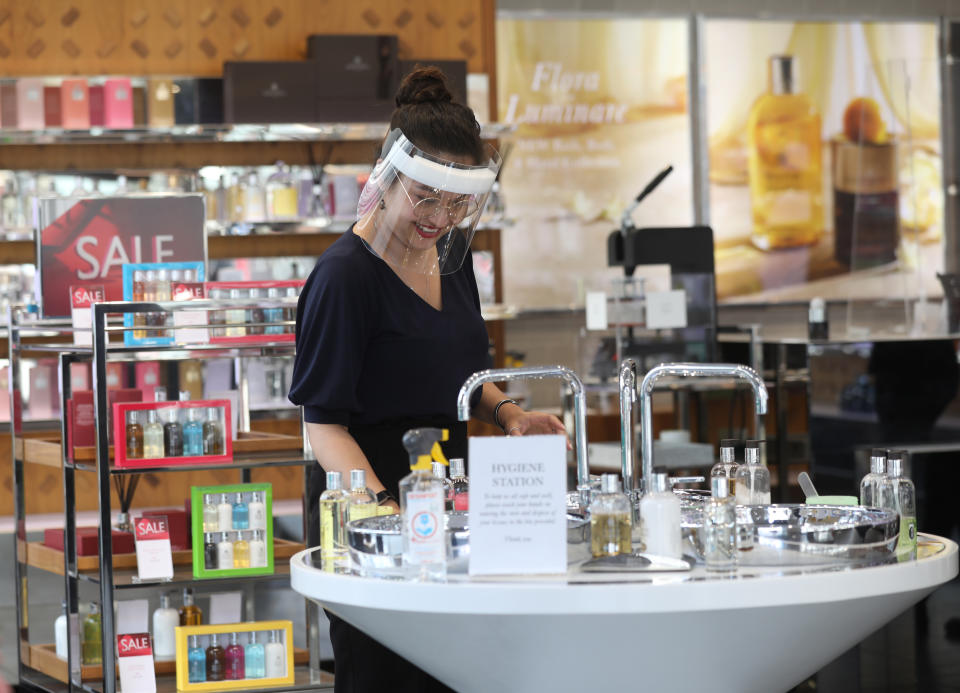Tens of thousands of higher-risk workers to get coronavirus tests when they don't have symptoms

Tens of thousands of workers in higher-risk occupations who do not have COVID-19 symptoms will be routinely tested for the virus as part of a new pilot, the Department of Health and Social Care (DHSC) has announced.
Occupations covered by the study, which starts immediately, include shop workers, taxi drivers and cleaners.
The DHSC added the study will improve understanding of the prevalence of the virus in asymptomatic people in higher-risk jobs.
It follows the announcement last week that regular testing would be rolled out for care home staff, even if they are not displaying symptoms.
Firms included in the new trial include taxi firm Addison Lee, BT, services firm Mitie and pharmacy giant Boots.
Local authorities in Bradford, Newham, Brent and Oldham will also select groups of people deemed to be high-risk for asymptomatic testing.
The government said each business will receive thousands of tests for staff via home-testing delivery or a mobile testing unit, while local authorities will book tests for people at walk-in test sites.
Those who test positive will need to self-isolate and results will be shared with the NHS Test and Trace programme so contacts can be traced, the DHSC said.
It comes as public health experts attempt to understand the extent of asymptomatic transmission of coronavirus.
Current estimates are that up to 70% of people with COVID-19 do not display any symptoms, but may still pass on the illness to others.
Speaking at a Downing Street briefing last week, Dido Harding, the head of the UK’s test and trace programme, said: “We need to get better at hunting out the virus.
“Both as individuals, if we have the symptoms getting a test, and then NHS test and trace needs to get better at targeting our testing in communities and professions where there are likely to be more people who have the disease but aren’t showing symptoms.”
According to analysis by the Office for National Statistics (ONS), workers in low-skilled jobs are the most likely to die from COVID-19.
Male security guards, construction workers and taxi drivers were the jobs with the highest coronavirus death rate.

Among women, workers in sales and retail had the most elevated coronavirus death rates compared to the rest of the population.
Men and women working in social care had significantly raised rates of death involving COVID-19 compared to the population as a whole, according to the ONS.
Ben Humberstone, head of health analysis at the ONS, said: “Analysis shows that jobs involving close proximity with others, and those where there is regular exposure to disease, have some of the highest rates of death from COVID-19.
“However, our findings do not prove conclusively that the observed rates of death involving COVID-19 are necessarily caused by differences in occupational exposure.”
Coronavirus: what happened today
Click here to sign up to the latest news, advice and information with our daily Catch-up newsletter
Read more about COVID-19
How to get a coronavirus test if you have symptoms
How easing of lockdown rules affects you
In pictures: How UK school classrooms could look in new normal
How public transport could look after lockdown
How our public spaces will change in the future
Help and advice
Read the full list of official FAQs here
10 tips from the NHS to help deal with anxiety
What to do if you think you have symptoms
How to get help if you've been furloughed

 Yahoo Finance
Yahoo Finance 

